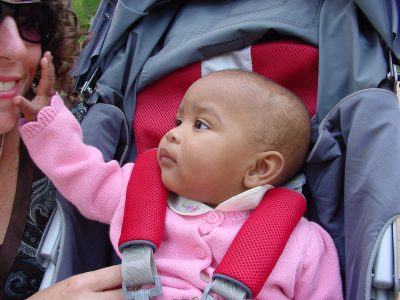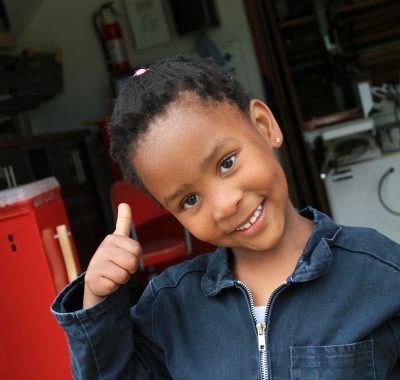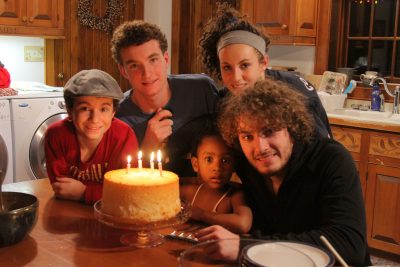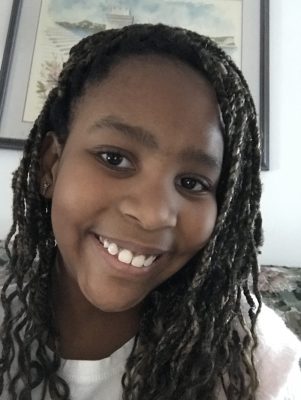 Have you ever looked back on a decision you almost changed your mind on, then realized how close you came to missing something great? That’s the feeling I often get when I look at our adopted daughter, Ellie. We began the process of bringing her to our family from South Africa in 2007. In September 2008, we found ourselves in the city of Durban, buying diapers and formula and baby bottles. Ellie was 7 months old then, and it had been more than 5 years since my wife and I had anything to do with feeding, changing diapers and general baby care. I must admit, I was tired, jet-lagged and not very enthusiastic.
Have you ever looked back on a decision you almost changed your mind on, then realized how close you came to missing something great? That’s the feeling I often get when I look at our adopted daughter, Ellie. We began the process of bringing her to our family from South Africa in 2007. In September 2008, we found ourselves in the city of Durban, buying diapers and formula and baby bottles. Ellie was 7 months old then, and it had been more than 5 years since my wife and I had anything to do with feeding, changing diapers and general baby care. I must admit, I was tired, jet-lagged and not very enthusiastic.
 I was half a world away from our other four kids being taken care of in Canada by friends who had moved into our house. The process of getting this far with our adoption was slow, inefficient, expensive and bureaucratic. My wife and I would be in Durban for a month waiting on paperwork to complete Ellie’s adoption, with no guarantee we’d even get to bring her back to our rural home in Canada. Within 24 hours of stepping off the plane, I was mixing my first bottle of formula. Why go to so much trouble and adopt? It was a question I’d asked myself many times during the process, almost to the point of giving up on the adoption completely. Even though Mary bore the brunt of the hassles because she dealt with all the paperwork, the difficulty and inefficiency of the adoption process was a pain for everyone.
I was half a world away from our other four kids being taken care of in Canada by friends who had moved into our house. The process of getting this far with our adoption was slow, inefficient, expensive and bureaucratic. My wife and I would be in Durban for a month waiting on paperwork to complete Ellie’s adoption, with no guarantee we’d even get to bring her back to our rural home in Canada. Within 24 hours of stepping off the plane, I was mixing my first bottle of formula. Why go to so much trouble and adopt? It was a question I’d asked myself many times during the process, almost to the point of giving up on the adoption completely. Even though Mary bore the brunt of the hassles because she dealt with all the paperwork, the difficulty and inefficiency of the adoption process was a pain for everyone.
A couple of reasons motivated us towards adoption in the first place, when it was all just a nice, warm-and-fuzzy idea. But warm-and-fuzzy goes away pretty quickly when you’re dealing with the hassles of the adoption process. When it all seemed like too much trouble, one thing kept me going. It was a phrase that kept popping into my mind whenever I was discouraged. I’m glad it did because Ellie is such a jewel in my life now: “If not us, then who?”
Why We Set Out to Adopt
 Extreme human need is the only thing the world has plenty of. This is both a tragedy of suffering but also an opportunity to show love. Real love shines best in a broken world. Mary and I believe one of God’s attributes is love, and we believe our main job here on earth is to develop our ability to love selflessly. Life is an exercise in developing “love muscles”. The extent to which we grow in ability to love with no promise of anything in return is the extent to which any human being is successful. We’ve always been thankful for our good life in Canada, we had room in our home, an unused seat in our mini-van and a lifestyle where both of us are at home all the time. Our response was to share. If a family like ours couldn’t adopt a child in need, then who else possibly could?
Extreme human need is the only thing the world has plenty of. This is both a tragedy of suffering but also an opportunity to show love. Real love shines best in a broken world. Mary and I believe one of God’s attributes is love, and we believe our main job here on earth is to develop our ability to love selflessly. Life is an exercise in developing “love muscles”. The extent to which we grow in ability to love with no promise of anything in return is the extent to which any human being is successful. We’ve always been thankful for our good life in Canada, we had room in our home, an unused seat in our mini-van and a lifestyle where both of us are at home all the time. Our response was to share. If a family like ours couldn’t adopt a child in need, then who else possibly could?
When Mary and I decided to get serious about this adoption thing, we looked at a world map, picked what we thought was the neediest part of the globe, then began the process. South Africa is the southern-most country in Africa, and it has the largest number of HIV-infected people in the world. There are 3.7 million orphans in that country, most of whom will be released onto the streets to fend for themselves when they turn 18. If any of these children were to appear at our doorstep, we’d take care of them. Why would we let distance change this?
As we were to discover, the extent of family breakdown in some South African communities is massive. This is why HIV infections are so common and why 7% of the entire population of South Africa are orphaned children. By comparison, only 1/10 of 1% of the Canadian population are orphans. And if early death from AIDS isn’t enough of a problem, adoption workers in South Africa tell us that in many communities it’s extremely rare for a father to stick around and provide for his family even when he is alive. They tell us that “love’em and leave’em” is the norm in many places, and Ellie is a case in point.
 We know nothing about Ellie’s past or her parents. All we can deduce is that her mother cared well for her for a few months, wrapped her in a blanket, then placed Ellie on the ground in front of an auto repair shop. I’m told this sort of thing is a common move of desperation. A woman becomes pregnant, the father does nothing to help her with the child, so she places the child outside his work place in an effort to get him to publicly own up to his responsibilities. In the case of Ellie, we don’t know if this is the case or the dynamic. Regardless of the background, the police were called and Ellie became part of the child welfare system in South Africa. This happened in April of 2008. In September we tucked her into a bed for the first time in the cottage we rented for our stay. We’ve been tucking her into bed ever since.
We know nothing about Ellie’s past or her parents. All we can deduce is that her mother cared well for her for a few months, wrapped her in a blanket, then placed Ellie on the ground in front of an auto repair shop. I’m told this sort of thing is a common move of desperation. A woman becomes pregnant, the father does nothing to help her with the child, so she places the child outside his work place in an effort to get him to publicly own up to his responsibilities. In the case of Ellie, we don’t know if this is the case or the dynamic. Regardless of the background, the police were called and Ellie became part of the child welfare system in South Africa. This happened in April of 2008. In September we tucked her into a bed for the first time in the cottage we rented for our stay. We’ve been tucking her into bed ever since.
We met other adopting families from Canada during our stay in South Africa and they all had children with similar stories. One little boy was found on the side of the road, freshly born and still surrounded by his amniotic sac. Like I said, there’s no shortage of human need in the world.
 Although our enthusiasm were heavily tested during the adoption process, something unexpected has slowly set in during the 12 years Ellie has been with us. Actually, quite a few unexpected things, many of them good. She’s smart, lively, loving and powerfully emotional. She’s also interested in the homestead work I do, and has already learned to drive our old F-150 quite competently in our fields. All in all, she’s a very rich spice in our family.
Although our enthusiasm were heavily tested during the adoption process, something unexpected has slowly set in during the 12 years Ellie has been with us. Actually, quite a few unexpected things, many of them good. She’s smart, lively, loving and powerfully emotional. She’s also interested in the homestead work I do, and has already learned to drive our old F-150 quite competently in our fields. All in all, she’s a very rich spice in our family.
When Ellie was in South African, the authorities gave her a name: Noluthando Silvu. “Noluthando” means “love” in the Zulu language. We gave her the permanent name of Ella Noluthando Maxwell, after our favourite female singer, Ella Fitzgerald. As it turns out, our Ellie is extremely musical. Click below to watch a couple of videos, one of which is Ellie singing with her brother, Robert, playing on the piano.